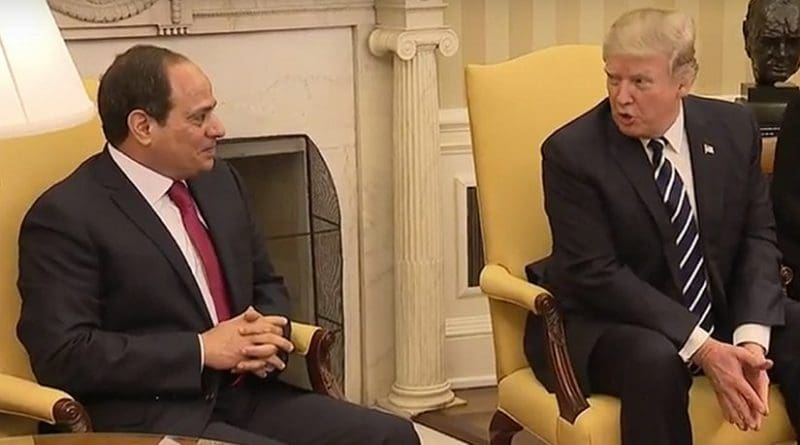100 Days In Office: The Trump Administration – Analysis
By IPCS
By Chintamani Mahapatra*
More than a hundred days have passed since Donald Trump entered the Oval Office as the forty-fifth president of the US. US domestic politics and Washington’s engagement with the rest of the world since then have entered an unprecedented period of uncertainty and there is no surety that this era of uncertainty is going to end any time soon.
Donald Trump has done several things that none of his predecessors either attempted or succeeded in doing. He draws only a dollar a month as his presidential salary. At the same time, he doggedly refuses to reveal his income tax returns. He has stopped former senior US officials from serving as lobbyists on behalf of foreign governments, which was a big blow to several countries that periodically used US officials to promote their respective national interests in the corridors of power in Washington. President Trump also signed a few executive orders aimed at protecting the job market for US citizens and making it costlier for US companies to hire foreign workers. The unemployment rate in the US has witnessed a record reduction in the first few months of the Trump administration.
The other side of the domestic scenario is equally striking. Trump is yet to gain the confidence of a large number of Republican legislators, but has managed a legislative victory in the US House of Representatives in his attempt to repeal the Obamacare health insurance policy. While he did not have his way in getting the appropriate budget allocation for the proposed wall across the US-Mexico border, he managed a substantial allocation to enhance US’ defence preparedness. He could not stop Congressional oversight over his campaign team members’ alleged connection with Russian intelligence, but displayed his mettle in firing the director of the powerful Federal Bureau of Investigation (FBI). He has waged a prolonged war with the US media by criticising and snubbing it, and has even prevented their entry into White House events. On social media, however, he continues to have a large fan following.
In the arena of world affairs, Trump, the presidential hopeful, unnerved several foreign leaders and alliance partners. He declared NATO obsolete, asked Japan and South Korea to have their own nuclear arsenals to defend themselves, declared China a currency manipulator, and Pakistan, an unreliable ally. He promised to build a wall to stop immigrants them from entering the US. He vowed to completely defeat the Islamic State (IS).
Many analysts argued that candidate Trump would be different from President Trump, and that he would behave like his predecessors by taking a 180 degree turn and abandoning his campaign rhetoric on US foreign policy. Many expected the Trump administration to build a cooperative relationship with Russia, US’ erstwhile Cold War adversary, and seriously combat emerging challenges from China.
However, Trump, as president, appears to exhibit a smart foreign policy strategy mixed with ambiguity and surprise moves. He no longer considered NATO obsolete but insists that NATO partners must pay more towards defence burden-sharing. He has promised to continue to extend US’ nuclear umbrella to Japan and South Korea, but has also demanded more money in exchange for the security guarantee. He has stopped calling China a currency manipulator, after having offended it through his telephonic conversation with the Taiwanese president. He continues to praise Russian President Vladimir Putin, but has also dealt him a political blow by raining down missiles on Syria on the basis of the alleged use of chemical weapons by the pro-Russia Syrian regime. He has sought to ban Muslim immigration from seven countries in an unintended projection of his image as anti-Muslim, but has also sent his vice-president to visit the largest mosque in Southeast Asia.
He has not walked away from the Iran nuclear deal, but is going to make Saudi Arabia his maiden foreign visit to balance Washington’s engagement in the Middle East. In other words, the Trump administration is going to be an administration with a difference. India will have to learn to deal with this administration with caution and innovative diplomacy because uncertainty will be the name of the game. Navigating this political environment will require deft diplomatic skill. The bipartisan consensus in the US for a stronger strategic partnership with India notwithstanding, playing ball with Trump is going to be hard.
* Chintamani Mahapatra
Rector and Professor, JNU, & Columnist, IPCS

